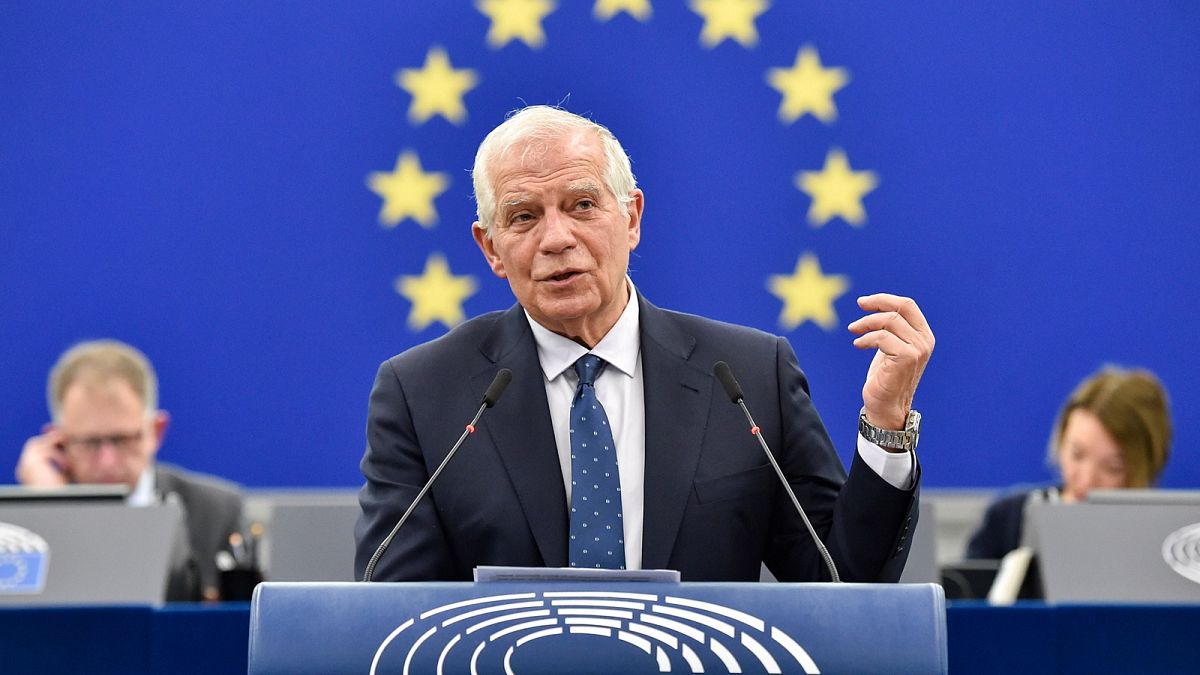In an interview with Euronews, Josep Borrell described the EU sanctions on Russia as a "slow-acting but certain poison."
Forging and maintaining political unity among the 27 members of the European Union in order to stand up together against Russia's illegal and brutal invasion of Ukraine "has not always been easy," Josep Borrell, the bloc's foreign policy chief, has admitted.
His comments were a reflection on the unprecedented and radical measures the EU has taken over the past year, many of which entailed prolonged, heated and down-to-the-wire negotiations.
"It hasn't always been easy, but so far we have managed" to keep unity, Borrell told Euronews on Wednesday after addressing the European Parliament in Strasbourg.
"Some (member states) complained, others disagreed, but in the end, we maintained the unity we needed."
Until now, the EU has slapped the Kremlin with nine packages of sanctions, which include a far-reaching ban on oil imports, more than €35 billion worth of banned exports, the expulsion of key Russian banks from the SWIFT system, and an extensive blacklist of army officials, oligarchs and propagandists.
A 10th package of penalties is already under work.
In his interview with Euronews, Borrell defended the effectiveness of the sanctions, describing them as a "slow-acting but certain poison" that is inflating Russia's budget deficit and crippling critical industrial sectors like car-making and aviation.
"We have done more than what it was thought to be possible," Borrell said.
"Then, we also have the diplomatic battle with the rest of the world, where we do have to do more. I'm not saying we have done it badly, but surely we haven't done it well enough."
"And the military aid (to Ukraine) has to increase and speed up," he went on, without mentioning the fighter jets that Kyiv is pleading to get from Western allies.
"That's what I would ask member states. The way to help Ukraine is now and fast."
Borrell said Russia has now deployed around 300,000 soldiers – double the number of soldiers it had before it launched its war last February – and is waiting to launch an attack "weather permitting."
"Unfortunately, I'm afraid we're going to see this war going on for another year," he said. "The situation is not easy and that's why we, Europeans, have to keep doing more of the same thing."
In parallel, the diplomat added, the EU needs to pursue "by all means" a negotiated peace deal, one that is based on respect for Ukraine's territorial integrity and the UN Charter.
"These are not contradictory things," he said.
However, Borrell stressed, the fate of the war rests on the shoulders of one single man: Russian President Vladimir Putin.
"Putin has said he has military objectives to fulfill and until he has done so, he won't be willing to stop the war," the high representative said.
"It was he who started the war and it is he who has to stop it."
